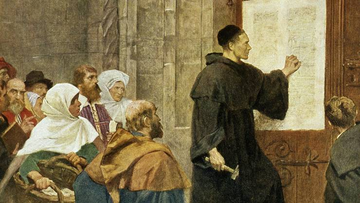 In the book of Judges we read about another generation, which arose, which knew neither the Lord nor what He had done (Judges 2:10). Today, it appears that a generation has arisen, which like Israel under the Judges, knows little of either the Lord nor of what He did during the time of the Protestant exodus and the struggles in the wilderness, which followed in the 16th and 17th century. Sometimes this is from a cowardly dislike of controversy and confrontation. But few people seem to understand either the evils from which the Reformation delivered us or the blessings, which the Reformation won for us. THE REFORMATION DELIVERED THE CHURCH FROM GROSS IGNORANCE AND SPIRITUAL DARKNESS The church, before the Reformation, was a church without the Bible. And a church without a Bible is as useless as a lighthouse without light, a candlestick without a candle, or a motor vehicle without an engine. The priests and people knew scarcely anything about God's Word or the way of salvation in Christ.
1 Comment
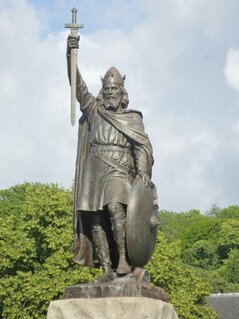
1.King Alfred the Great - The Reformer King
King Alfred of Wessex (849-901) lived through tumultuous times and, in his 30 years reign, he personally commanded in 54 pitched battles against the invading Danish Vikings. King Alfred began the process of converting the blood-thirsty Viking invaders to Christianity. Alfred was both a great soldier and scholar, a law-maker, educator, author and Reformer. Alfred was a dedicated Christian, the first to translate the Gospels, and other parts of the Bible, into English. He donated half of his personal income to Church schools and founded numerous schools. He was recognised as the Father of the English Navy and he gave England a stable system of laws based upon God's Law. King Alfred's Dooms (The Common Law) began with The 10 Commandments, the Laws of Moses, the Golden Rule of Christ, and other Biblical principles from the Sermon on the Mount. No other sovereign did more in battle, in establishing law, promoting the education of his people and bringing his enemies to Christ. 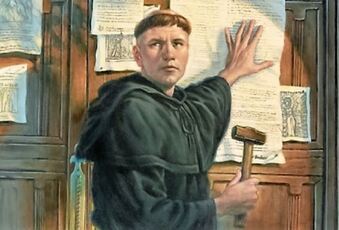 31 October is Reformation Day. The message of The Greatest Century of Reformation is both important and urgent. We want God to bless our countries. But we cannot expect God to bless those who are in rebellion to His Laws. Our societies need Reformation and our churches need Revival. Threats As in the days of the Reformers, today we are facing both internal and external threats. Internally we are facing a renaissance of paganism. Externally we are facing threats from an aggressive radical Islamic Jihad. Crisis Even more seriously, there is a crisis in our churches. Most of our people are ignorant of history, and have a very superficial grasp of Scripture. As a result, many professing Christians are compromising, cowardly and ineffective. Our churches are filled with weak and worldly, lukewarm and inactive members. In many cases the salt has lost its flavour, and the light is being hid under a bushel. 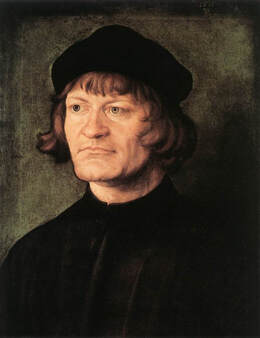 To listen to the audio of Back to the Bible – Zwingli Style on From the Frontline, click here. To watch the video of this presentation, click here. To listen to the audio lecture as presented to the Reformation Society, click here. 1 January marks the birthday of Swiss Reformer Ulrich Zwingli and of the launch of the Reformation in Switzerland. It was on 1 January 1519 that Ulrich Zwingli began expositionary preaching in Zürich, starting with the Gospel of Matthew, Chapter 1. Ulrich Zwingli was the father of the Reformation in Switzerland. Born and raised in the Alps, Zwingli was one of the most colourful and audacious characters in Swiss history. A devout student of Scripture, Zwingli was transformed and shaped by the Word of God. He has been described as "an amazing combination of intellect, passion and wit." Man of the Mountains Born at an altitude of 3,600 feet (1,100 metres), the son of the Mayor of Wildhaus, Zwingli studied in Bern, Basel, and Vienna. In 1506, he received his MA degree. As a pastor in Glarus, Zwingli served as a chaplain with Swiss mercenary soldiers in Italy. The Swiss regularly hired out their men to fight for foreign powers. At that time, the Swiss generally believed that their national economy depended on this war industry. 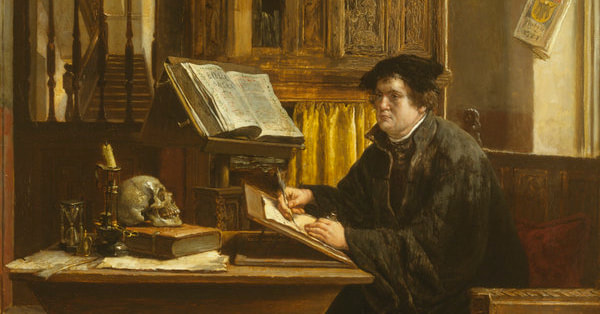 Trivium From the Middle Ages until about the middle of the 20th century, Latin was a central part of a man’s schooling in the West. Along with logic and rhetoric, grammar (as Latin was then known) was included as part of the Trivium – the foundation of a medieval liberal arts education. From Latin, all scholarship flowed and it was truly the gateway to the life of the mind, as the bulk of scientific, religious, legal and philosophical literature was written in the language until about the 16th century. To immerse oneself in classical and humanistic studies, Latin was a must. Grammar schools in Europe and especially England during this time were Latin schools and the first secondary school established in America by the Puritans was a Latin school as well. But beginning in the 14th century, writers started to use the vernacular in their works, which slowly chipped away at Latin’s central importance in education. This trend for English-language learning accelerated in the 19th century; schools shifted from turning out future clergymen to graduating businessmen who would take their place in an industrializing economy. An emphasis on the liberal arts slowly gave way to what was considered a more practical education in reading, writing and arithmetic. 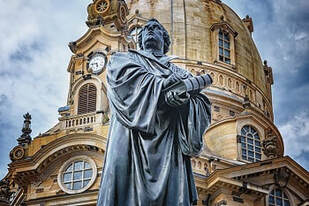 Ten years after Dr. Martin Luther nailed his 95 Theses to the Wittenberg Church door, a plague-ravaged Germany. Luther and his wife, Katharina von Bora, who was pregnant at the time, turned their home into a hospital for people suffering from the plague. To Flee or Not to Flee? Pastor Johann Hess asked Luther for advice. Luther responded with a tract titled, Whether One May Flee from a Deadly Plague. Love your Neighbour Luther’s priority was to follow Christ’s teaching:, “As much as you did to one of the least, you did to Me” Matthew 25:40. 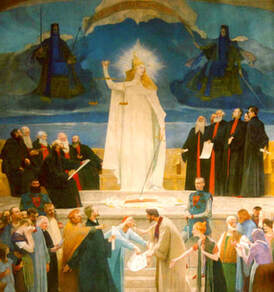
Despite anti-Christian prejudices, it is to the teachings and example of Jesus Christ that women owe most of their freedoms. The advent of Christianity raised the dignity, freedom and rights of women to levels never before known in any other culture or religion. Indeed, as one historian put it: “The birth of Jesus was the turning point in the history of women.”
As a result of the teachings and example of Jesus Christ, women in much of the world today, especially in the West, enjoy far more privileges and rights than at any other time in history. Women in the Middle East By way of contrast, one only needs look at how women are treated in those countries where Christianity has had little influence, for example in the Muslim Middle East. Christian women have been publicly stripped and flogged in Sudan for failing to wear the Islamic Abaya (a black garment that covers the head, face and the entire body). Under the Taliban in Afghanistan women were forbidden to go to school, to work outside the home, or even to walk without their whole face and head being covered under the Abaya. Women have been arrested and jailed in Iran for wearing lipstick. In Saudi Arabia, it is illegal for women to drive a motor vehicle. 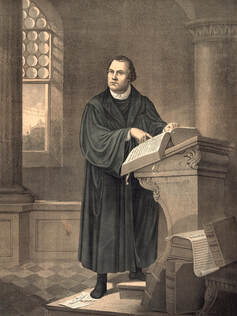 Martin Luther, the great German Reformer, lived from 1483-1546. He translated the Bible into German and pointed the Church back to Jesus Christ and the Early Church. He stood before Pope and Emperor and courageously defended the Truth. By His Word, God brought about a Reformation of the Church, and through regenerated thinking established great freedoms in every area of life. Luther's influence reached far beyond Germany and paved the way for Calvin's Reformation. The Holy Scriptures and Luther's writings formed the character of Germany. His Catechism became the basis of education, and his great hymns including "A Mighty Fortress is our God," are sung all over the world. MARTIN LUTHER'S CONTEMPORARIES Among Luther's contemporaries were the great German painters Albrecht Dürer and Lucas Cranach. In Italy the genius Michelangelo was at work. Columbus was sailing to the New World, and Kopernikus discovered that the planets move around the sun. Paracelsus pioneered a new medical science, and Machiavelli laid down his political philosophies. Earlier Johannes Gutenberg had perfected the printing press, and this enabled Luther's writings to be multiplied in all of Europe. 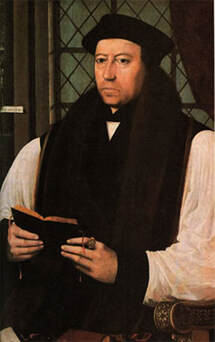
The Reformation in England was quite different to the Reformations in Europe. There was no one dominant individual to give direction to the Reformation in England. Germany had Martin Luther. Switzerland had Ulrich Zwingli. The French-speaking world had John Calvin. But England’s Reformation was very different.
In the 14th Century, Professor John Wycliffe had been the Morning Star of the Reformation. William Tyndale sacrificed his life to provide the first Bible translated from the original Hebrew and Greek and printed into English. But whereas the Reformations in Europe were inspired and directed by religious leaders, the Reformation in England was primarily controlled by political leaders: King Henry VIII, King Edward VI, Queen Elizabeth I and Chancellors such as Thomas Cromwell. 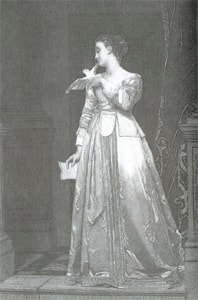 This article is also available as a PowerPoint presentation here. Anne was born during the reign of King Henry VIII to an honoured knight, Sir William Askew. Attractive Anne was described as attractive in form and faith, a beautiful and high-spirited young woman, well educated, with unusual gifts, and “very pious.” Her father arranged that she should be married to the son of a friend, Thomas Kyme, to whom her deceased sister had originally been promised. Faithful Anne endeavoured to be a faithful wife, and bore her husband two children. However, despite an initially happy marriage, her husband, Kyme, threw her out of the home because of her Protestant Faith. Dedicated Anne had acquired a copy of the English Bible and had studied it enthusiastically. She abandoned her formal Catholic religion for the life-changing Protestant Faith in a personal Lord and Saviour, Jesus Christ. Her enthusiastic witness drew the attention of the priests who warned her husband about her “sedition.” When challenged she confessed that she was no longer a Romanist, but “a daughter of the Reformation”. At this, her husband threw her out of the home. However, he acknowledged that he had never known a more devout woman than Anne. |
History ArticlesCategories
All
Archives
May 2023
|
- Home
-
History Articles
- History Articles
- All Categories
- Character Studies
- Greatest Century of Missions
- Greatest Century of Reformation
- Reformation In Bohemia
- Reformation In England
- Reformation In France
- Reformation In Geneva
- Reformation In Germany
- Reformation In Italy
- Reformation In Scotland
- Reformation in Switzerland
- Victorious Christians
- Contemporary Articles
- Resources
- Contact
- Donate
|
The Reformation Society
PO Box 74, Newlands, 7725, South Africa Tel : (021) 689-4480 Email: [email protected] Copyright © 2022 ReformationSA.org. All rights reserved |
- Home
-
History Articles
- History Articles
- All Categories
- Character Studies
- Greatest Century of Missions
- Greatest Century of Reformation
- Reformation In Bohemia
- Reformation In England
- Reformation In France
- Reformation In Geneva
- Reformation In Germany
- Reformation In Italy
- Reformation In Scotland
- Reformation in Switzerland
- Victorious Christians
- Contemporary Articles
- Resources
- Contact
- Donate
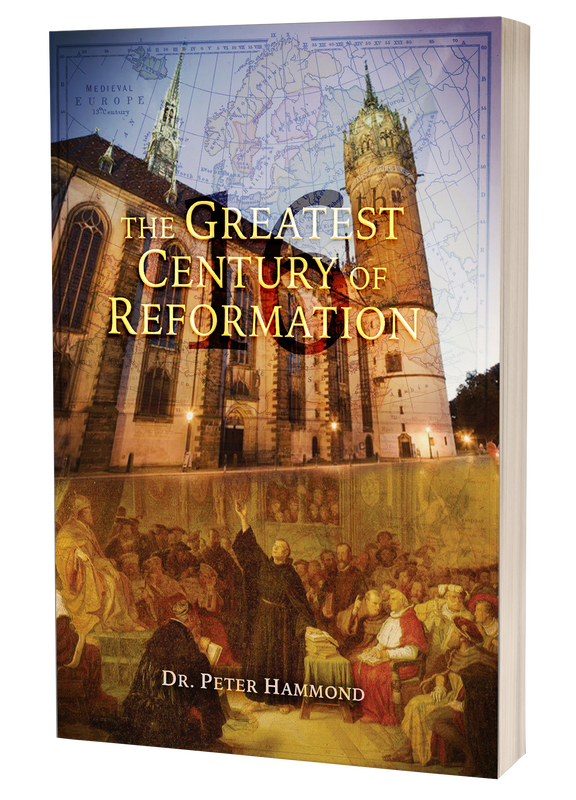
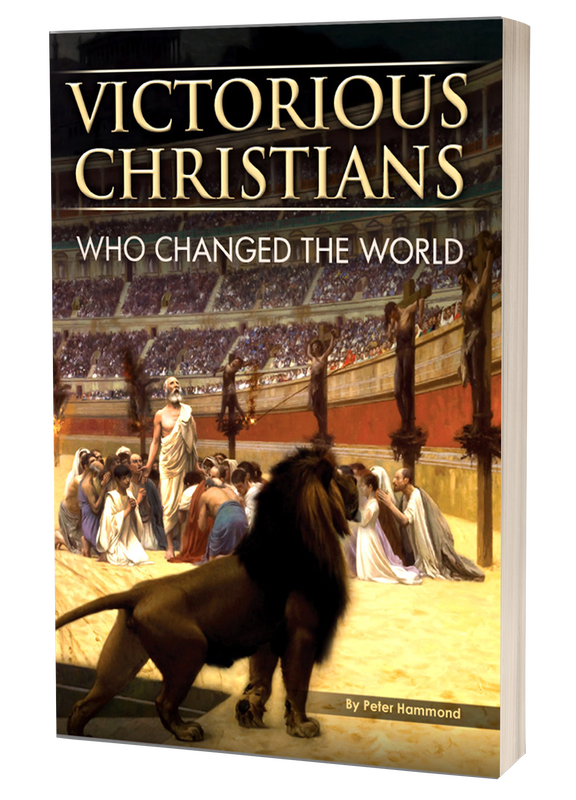
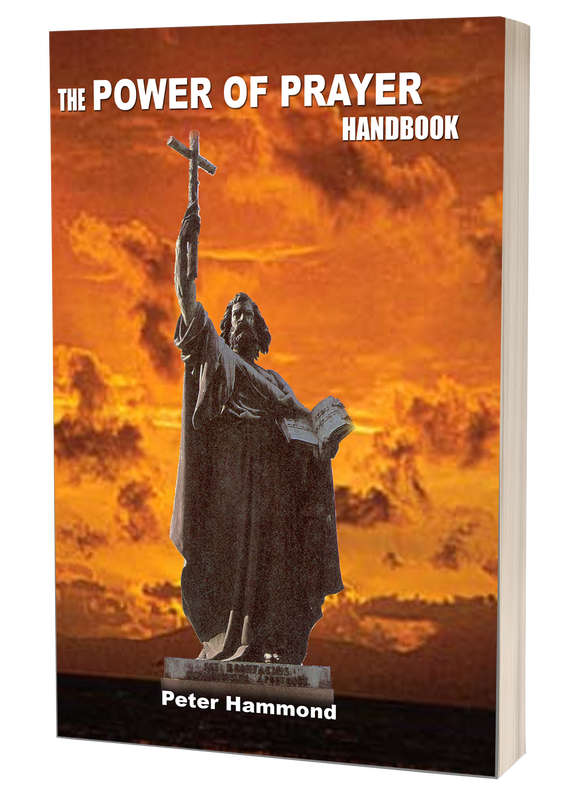
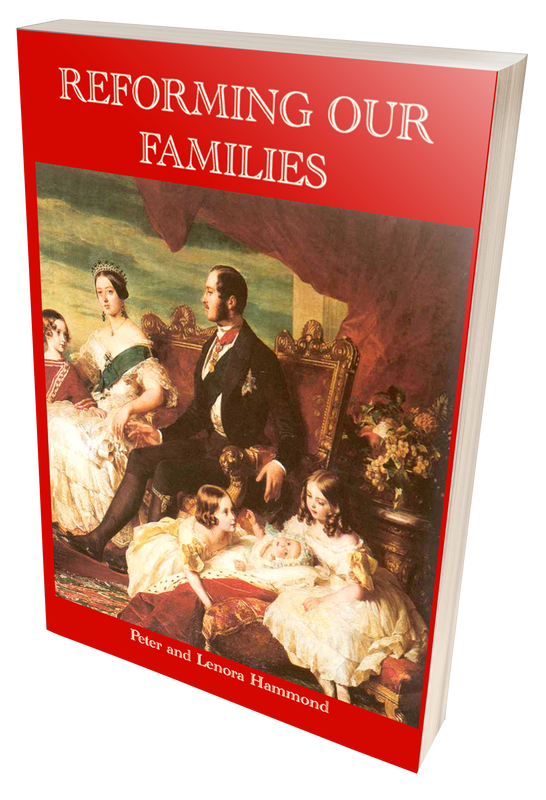
 RSS Feed
RSS Feed

